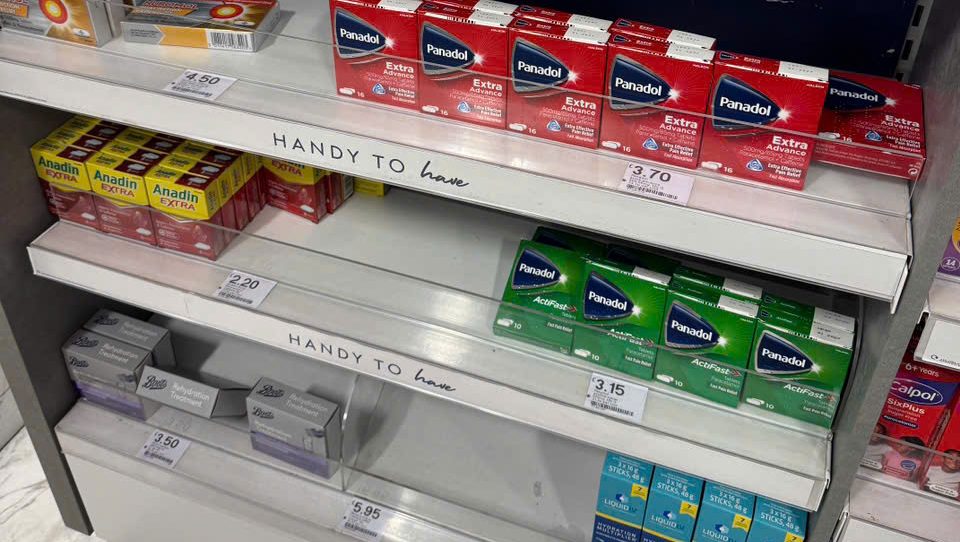It is Week Two of Michaelmas, and half my friends have gone missing. Not to the Bodleian for an impromptu reading week (we wish), but to their beds, armed with a thermometer, industrial quantities of paracetamol, and the vain hope that the lecture presentations on Canvas can help us survive through our paper.
Welcome to Freshers’ Flu season – when Oxford’s future world leaders discover that their immune systems are, in fact, just as mortal as everyone else’s.
I saw it coming. And yet, I could do nothing to stop it.
Before returning to Oxford, I had armed myself with eight vaccinations (thank you, health insurance). Eight. In the span of two weeks. Flu jab? Check. COVID booster? Obviously. That random travel vaccine the nurse insisted I needed? Sure, why not? By the end of it, I thought I was close to being immortal. I felt invincible!
But I am not.
Readers, I still have it.
Within days of arriving in Oxford, Freshers’ Flu struck me quicker than a date goes wrong the moment you confess to your friend that you like him.
How am I so sure that it is not (only) the freshers who gave me the flu? Because, I promise, I do not have the social life for it. As a third-year Linguistics and Philosophy student, my daily route consists of: the Humanities library, Radcliffe Science, Taylorian, the Kebab King, Keble, and my tiny, cosy room. And repeat. It is week 0. My entire social life consists of meaningful eye contact with the library staff and whispering “sorry” to strangers passing by the street. I have not even seen a fresher, let alone exchanged respiratory droplets with one.
So if not freshers, what is actually making us sick every Michaelmas?
Academically, our curriculum is designed to torture us. Michaelmas brings packed lecture halls where ambitious students with streaming noses still show up (because missing a lecture at the beginning of Michaelmas makes us feel guilty). College accommodations cram us into centuries-old buildings where heating is either off entirely or blasting unpredictably. Tutorials put us in small, poorly ventilated rooms for an hour of intense academic combat. These are not just uncomfortable; they are epidemiologically ideal for viruses to do a tour. It is common sense that a lack of sleep suppresses immune function. Yet here we are, pulling all-nighters fueled by Monster and spite, then showing up to 10 a.m. lectures nonchalantly acting like we are academic weapons (we are not!).
We overestimate ourselves, thinking that academic excellence equals being physically capable of everything. When did you last eat an actual meal? Not a meal deal, not a coffee for breakfast, but an actual meal with vegetables and fruits? When did you last take vitamin D? When did you last see the sun? We are operating in a state of chronic nutritional deficiency, yet we wonder why our bodies cannot fight off the common cold.
Our social life is not much better. Michaelmas arrives with Welcome Drinks, Formal Hall dinners, society mixers, crewdates, and the note “pub follow-up” after most of the society events. Alcohol disrupts sleep quality, dehydrates, and temporarily suppresses the immune response. We’re essentially destroying our liver and calling it “networking”.
Then the sun turns its back on us. It is the fourth week of October, and it is getting colder quickly, but half of us are still committed to “autumn cute” fashion because our proper winter clothes have not arrived yet. We prioritise aesthetics over warmth, claiming “beauty is pain”, and then act surprised when our immune systems stage a protest.
So are we the problem?
Not entirely: this is not just our poor individual choices. Oxford’s structure actively encourages self-destructive behaviour.
The tutorial system demands constant output and an intimidating one-on-one session with your tutor, with less-than-a-table-wide social distancing. The social expectation is that you will attend everything while also excelling academically. The unspoken message is that self-care is for people with less ambitious goals: not doing all-nighters means you have not done much, or enough, work; skipping lectures the morning after means you are not strong enough for Oxford; not having a social life or a pile of extracurriculars means that you are merely a nerd, not a genius. And you cannot say no to social drinking events because deep down you know that if you decide not to go at the beginning of Michaelmas, when students eagerly come back, say “yes” to mostly everything, and are open to make friends, you will have no friends for the rest of the year, or worse, the rest of the degree.
We, all of us, have created an environment where getting sick is almost inevitable. It is a canon event. Still, we blame the freshers.
So maybe, maybe, before we blame the wide-eyed freshers for their international germ collection, we should ask ourselves: did I really think eight vaccines could outmatch three all-nighters running on Mocha, Redbull, four hours of sleep, and the Oxford dress-cute closet in such brutal English winter?
Freshers did not make us sick. Oxford did. We just keep letting it do it to us.
Note: The author wrote this after surviving Freshers’ Flu with two boxes of Lemsip and three bottles of Covonia. She is now wearing a puffy, ugly coat and swears never to touch alcohol again.

